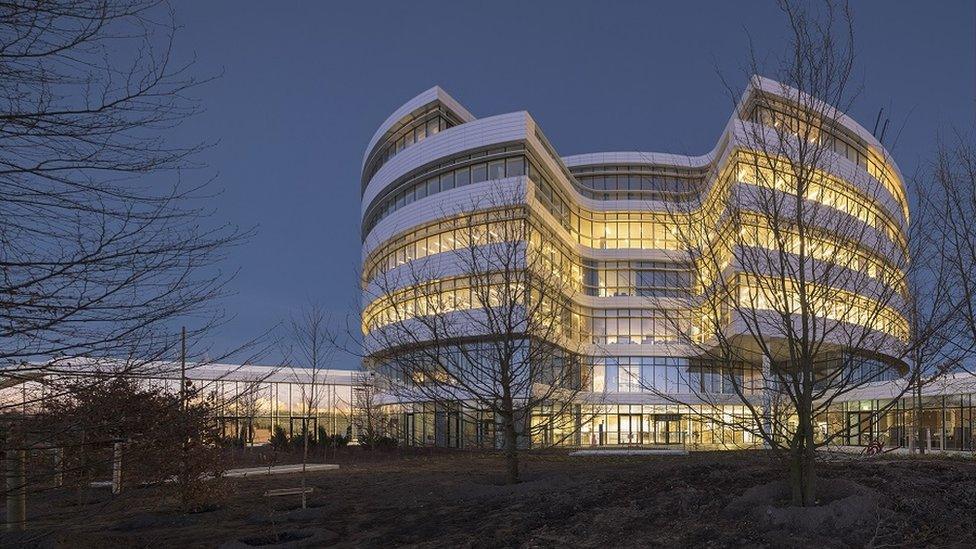Danish drugs giant makes big UK investment
- Published

Novo Nordisk is based in Denmark
Denmark's Novo Nordisk is to invest £115m over 10 years in a new science research centre in Oxford.
Eventually employing 100 academics and scientists, the facility will work on new ways of treating type 2 diabetes.
The decision to invest in the UK was described by David Gauke, Chief Secretary to the Treasury, as "a vote of confidence in the UK's position as a world-leader in science and research".
Novo Nordisk said it was attracted by Oxford's history of "excellence".
Speaking exclusively to the BBC, Novo Nordisk's executive vice-president and chief science officer Mads Thomsen said the UK's decision to leave the EU made the firm pause for thought, but the company took a very long view.
"Obviously we think the Brexit decision was unfortunate. That being said, Oxford University has been around for 800 years so the academic excellence and our company's ability to turn that into medicines hasn't really changed," he said.
Split roles
While the disease research and molecular biology will be done in Oxford, any new drugs or treatments will be developed and manufactured in Denmark and, although Oxford University will get some reward for any success, Mads Thomsen made it very clear that the lions share of any commercial spoils will go to the Danish company.
"You have to bear in mind the investment behind a new successful medicine is typically £500m which is mostly expensed by the company," he told me.
Foreign companies and investors have been pouring money into the UK's top universities in recent years. In November last year, a fund set up to commercialise research at Oxford announced an additional £300m of funding - almost all of which came from China, Singapore and Oman.
UK investors like Neil Woodford, who has been actively investing in UK science, are in a small minority.
That's a state of affairs that the vice chancellor of the University recently said UK investors "would come to regret".
Brexit impact
Although Novo Nordisk is pressing ahead with its investment, Brexit looks likely to see one important pharmaceutical body leave the UK.
The European Medicines Agency is responsible for the scientific evaluation, supervision and safety monitoring of medicines developed by pharmaceutical companies for use in the EU.
Since 1995 it has been based in London and employs 900 people in Canary Wharf. Mads Thomsen said it had been a great success and now looked likely to leave.
"We are very happy with the way the European Medicines Agency has worked and everybody is disappointed that it is likely it will have to leave the UK. We hope as many of the current 900 staff as possible will follow it to its new home in the EU as it is in everyone's interest that there is as little disruption as possible for the journey of new medicines to patients."
While the Novo Nordisk announcement is welcome inbound investment for UK academia, the process of approving new blockbuster drugs and the commercial rewards associated with them is headed the other way.